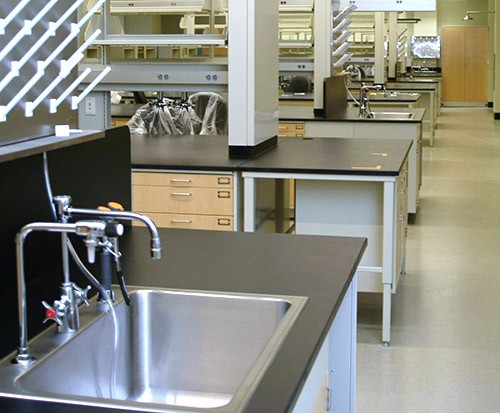“Obesity is viewed as a chronic disease,” said Pennington Biomedical Executive Director John Kirwan, Ph.D. “It is at the root of eight of the 10 leading causes of death in the United States. Obesity has been linked to a number of serious health conditions, such as type 2 diabetes and more than a dozen deadly cancers. There is no greater threat to our health and economy.”
Pennington Biomedical’s recent work in obesity includes: The center’s first national awareness campaign was designed to educate the public that obesity is a disease and not a personal failing.
- Discovering a chemical compound called BAM15 that was shown to help elderly mice with obesity lose weight, add muscle and strength, reduce age-related inflammation, and increase physical activity. The findings show that BAM15 may play an important role in extending people’s health span, the time they enjoy good health.
- Launching the Obesity, USA advocacy campaign. The center’s first national awareness campaign was designed to educate the public that obesity is a disease and not a personal failing. Obesity is a complex disease that manifests through dysfunctional biological processes.
- Establishing the Metamor Institute, the first center in the nation to offer an integrated and multidisciplinary approach to caring for individuals who suffer from obesity in a single facility.
- Developing the PROPEL program, a personalized obesity treatment plan, including health coaching that helped low-income Louisiana residents maintain 5 percent weight loss over two years. Weight loss that lasts for years represents a huge leap forward compared to most weight-loss programs. The program was effective in treating obesity with an intensive lifestyle program that can be done in primary care clinics with health coaches alongside doctors.
- Creating an app that could help prevent childhood obesity by helping preschoolers improve fundamental motor skills, such as running, hopping, jumping, and throwing a ball. These skills have to be taught and practiced. Children who don’t get that chance tend to become less active. They miss out on opportunities to build strong hearts and muscles and are at higher risk of obesity and other chronic illnesses.

This innovative approach and the novel scientific discoveries it has produced have made Pennington Biomedical a go-to clinical trial site for the pharma industry. The research center has played a role in testing all diabetes medications in use today and nearly all obesity treatments approved by the federal Food and Drug Administration.
The research center utilizes an entrepreneurial model to help drive discovery. Pennington Biomedical is also increasing collaborations with the pharmaceutical and food industries. Scientists at Pennington recently participated in a clinical trial that examined the effectiveness of the WW International Inc. (Weight Watchers) program for people with diabetes. The study showed the program could help participants lose weight, control their blood sugar levels, and improve their overall well-being. Pennington scientists have also studied the effectiveness and safety of biotherapeutic products, capsules that help people with obesity feel full, eat less, and lose weight.
In addition, research center scientists have worked with the food industry to investigate healthier snacks that lessen blood sugar swings and food products that help people better manage their weight. Dr. Kirwan likes to say the Research Center is in the business of bringing health solutions from cells to society. The center pushes science forward through leading-edge research and discovery, then puts that science to work to benefit Louisiana, the U.S., and the world. “Every day, we are advancing scientific discovery that helps millions of people live longer and better lives,” Dr. Kirwan said. “It’s who we are. It’s what we do. It’s the business we’re in.”
To learn more, visit PenningtonBiomedical.org.
